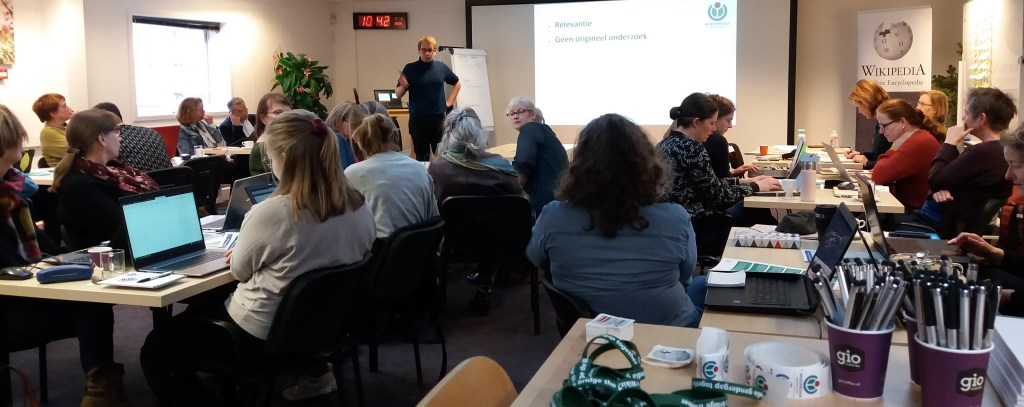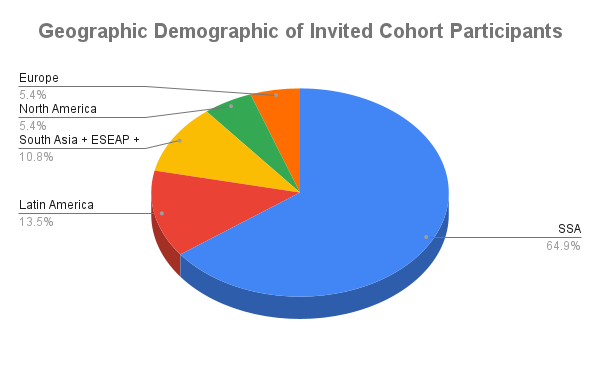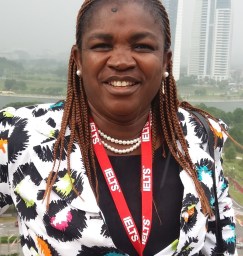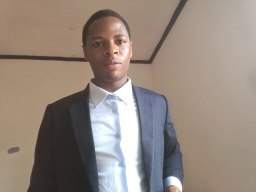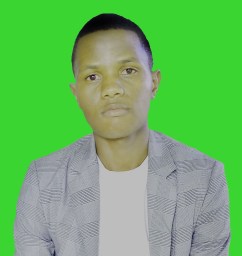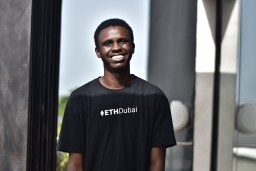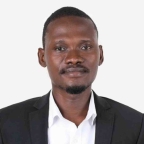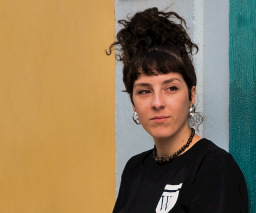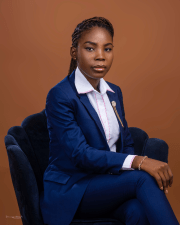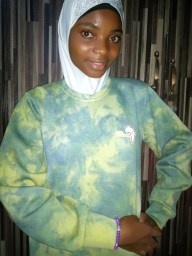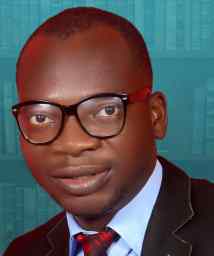Movement organizers play a significant role in growing our Free Knowledge ecosystem by training and recruiting newcomers to the movement and facilitating better retention and activity of contributors on the projects. Taken cumulatively, movement organizers are important actors in facilitating content development on the Wikimedia platforms.
Guided by the Movement Strategy Recommendations 6 and 8 to enhance Leadership and Capacity Building and Topics of Impact, the Campaigns Team at the Wikimedia Foundation works to support and advise movement organizers to run impactful, effective content campaigns. Through the Organizer Lab, the team has created clear pathways for organizers to gain campaign organizing and other relevant skills or knowledge they need to champion content campaigns and topics for impact organizing within the Wikimedia Movement.
In September 2022, the Campaign’s team announced the Organizer Lab (beta), a first within the movement, that is focused on empowering movement organizers in running campaigns that address Topics for Impact related knowledge gaps. By using the WikiLearn platform to run a cohort-based course, we were better able to provide organizers with a comprehensive introduction to this kind of campaigning in the movement.
1st Cohort – Course Completion
Climate Change and Sustainability was identified as a key topic of impact to kick off the Organizer Lab Course, owing to the rise in recent page views on related topics on Wikipedia. In 2022, Wikipedia recorded 346M pageviews on 31,000 climate change-related articles across all language wikis. We also know that 10,000s of other pages are connected to key knowledge gaps related to addressing the UN Sustainable Development Goals. To learn more about why this theme, we recommend this blog post.
In total, 129 people applied to join the first cohort and 36 organizers were selected from this pool for the beta experience of the Organiser Lab. 21 of the 36 participants completed the 9-week online course and 10 out of these applied for the Organiser Lab seed project grant. In March 2023, ahead of the WikiForHumanRights Campaign, 6 out of the 10 applicants have been awarded funding to undertake a project on Climate Change and Sustainability.
Skills Gained by the Organizer Lab 2022 Cohort
We are optimistic about the outcomes of the course:an initial evaluation of participants showed their expressed excitement about the skills they gained during the course,especially those related to:
- Identifying topics for impact using resources like the WMF Research Knowledge Gaps framework
- Identifying specific Wikipedia and Wikidata items that people could contribute to related to the knowledge gaps with tools like Petscan and ListBuilding
- Understanding how to apply organizing strategies to the Climate and Sustainability topic areas and audiences in particular
- Using these skills, as well as knowledge about their audience, to develop effective events and programs that fill these gaps.
We are still early in the process for evaluating the lab (we will see most of the impact in the upcoming year), but we are optimistic its impact because we already see some of the lab participants organizing regional activities as part of the annual #WikiForHumanRights campaign.
Supporting our Movement through the Wikimedia Foundation Carbon Fee
The Wikimedia Foundation is committed to seeking ways to reduce the impact of our activities on the environment and in 2022, we established an internal carbon fund.
The fund is raised through a newly introduced US$50/ton internal Carbon Fee, which is an internal “tax”, on our carbon emissions. The Fund will be used to support new projects aimed at implementing the Movement Strategy initiatives around Environmental Sustainability.
The 10 grantees from the organizer lab first cohort that qualified for a grant will be funded through this carbon fund to implement projects on Climate Change and Sustainability.
Read the applications and concept notes HERE
What’s next?
The Campaigns Team is committed to providing ongoing support to movement organizers looking to learn how to effectively run campaigns in the Movement. We are currently considering feedback received on the lab and learning how to adjust and strengthen the course ahead of the second cohort.). More importantly, we also learned more about the skills and learning materials organizers need throughout the movement. We are beginning to publish these materials separate from the course. For example, as part of the #WikiForHumanRights campaign we updated and presented two training sessions on using tools for List Building: Using tools to Find Articles for Topic Lists, and more complex Building Topic Lists with Petscan. Interested actors can follow the Campaigns team’s Meta Wiki page for updates on Version 2 of the Organizer Lab.
Spotlighting the 6 Grantees
Dr. Ngozi Eunice Osadebe
Dr. Ngozi Eunice Osadebe is an Organizer Lab grantee that will be implementing a project focused on documenting stories of deforestation activities relating to the Nigerian context on wikimedia projects. She is partnering with the Institute of Climate Change Studies, Energy and Environment; and the Department of Geography, University of Nigeria Nsukka on the project. Dr. Osadebe is a Deputy University Librarian at the University of Nigeria, Nsukka (UNN); certified member of the Librarians Registration Council of Nigeria (LRCN); and fellow of the Association of African Universities (ACU) Martha Farrell Foundation. She finds the Organizer Lab a worthy journey and does not regret her decision to drop three courses with IDEP-UN and the UN- 1000 voices in order to focus on the Organizer Lab.
‘’The most interesting parts of the course are the units that taught design thinking and topics of impact. It was fun and heartwarming. I saw myself as a student once again – attending classes, doing assignments and trying to beat deadlines. I must commend Euphemia Uwandu and Alex Stinson for reviewing the assignments. They were wonderful. The soft and soothing words with which they comment on the assignments were part of the reasons I did not run away from the course. At the closing ceremony of the program, I asked them if they attended training on adult education but they did not seem to understand my question.’’
Dr. Ngozi Osadebe
Through her project, she wants to make information freely available to the public on topical issues affecting her community such as Climate Change, Human rights, inequalities and inclusiveness in order to equip them with the skills to face these social problems.
Justine Msechu
Justine Msechu is a Web Developer, and Cyber Security expert from Tanzania who joined the Wikimedia movement in 2020. He is one of the leaders of Wikimedia Community Kilimanjaro and has participated in several wikimedia programs including the Let’s Connect Peer Learning Program and now the Organizer Lab.
‘’Through my participation in the Organiser Lab program, I have been able to learn many things such as preparing a proposal, identifying topics for change, strengthening team collaboration, brainstorming, and various tools for searching for articles including petscan, wikidata Query, List building tool, Gap Finder, etc. I have also learned how to identify knowledge gaps, and build the right team to work with on a campaign’’
Justine Msechu
Together with Organizer Lab fellow, Anuary Rajabu, Msechu will be implementing the Swahili Climate Voices project to increase the coverage of climate change-related topics on Swahili Wikipedia on the internet through Wikimedia projects. Anuary Rajabu is a Certified Content Campaign Organizer, member of Wikimedia Community Kilimanjaro, WIkimedia Community Arusha and Let’s Connect Peer Learning Group in Tanzania.
Daniel Obiokeke
Daniel Obiokeke is a Nigerian who joined the Wikimedia movement as a teenager and has contributed 14000+ edits and 270+ Wikipedia articles to Wikipedia.
‘’I am thrilled by the capacity Wikipedia gives me to learn, contribute and connect with a diverse community of open knowledge enthusiasts. I joined Organizer Lab when I was a Wikipedian in Residence and I was seeking the best ways to build impactful campaigns. The Organizer Labs exceeded my needs as I got better know-how on how to build communities, what to expect, different kinds of potential participants, kinds of campaigns and how to efficiently organize a campaign’’
Daniel Obiokeke
Daniel is quite confident that these skills will be very useful in implementing a project that seeks to create Simple English Wikipedia versions of existing English Wikipedia articles on Climate Change Campaign as well as improve already existing ones so that knowledge on Climate Change will be accessible to everyone no matter their level of English efficiency.
Stephen Dakyi
Stephen Dakyi is a Wikimedian from Ghana currently based in Accra. He is an Organizer Lab grantee that will be implementing the Wiki-Green Conference 2023 titled ‘’Involve to Evolve: The New Climate Paradigm’’. The conference that will be held in Accra and Tamale Ghana will rally discussions on reducing greenhouse gas emissions, climate change adaptation, loss and damage resulting from inevitable or avoidable climate change impacts. Stephen is excited about the skills and knowledge gained from the Organizer Lab which will be useful in advancing his project implementation and promoting sustainable development in his community.
In his words, ‘’I have learned valuable skills such as understanding of Climate and Sustainability topics, designing topics for impact campaigns, community organizing, using on-wiki skills and tools in organizing events, fundraising, grant-making and design thinking that will be applicable in executing sustainable development initiatives’’.
Stephen Dakyi
Andi Inácio
Andi Inácio is an Organizer Lab grantee that will be collaborating with another fellow, Ana Bragança to implement Editatona Território Corpo-Terra, a long duration Edit-a-thon targeting Lusophone territories and communities with a Gender and Environment theme. This engagement will rally participants from South America, Africa, and Europe.
‘’For me, the highlight was the opportunity to discuss the presented content with diverse and brilliant wikimedians from all over the world. It was a very enriching experience indeed’’
Andi Inácio
In implementing the project, she hopes to leverage the knowledge on list building tools and personas gained from the Organizer Lab.
Bukola James
Bukola James is a Nigerian Librarian, Certified Content Campaign Organiser, Certified Trainer of the Reading Wikipedia in the Classroom program, Founder, Wikimedia Fan Club in Kwara State University, Nigeria and a Special Advisor for the Wikipedia and Education User Group. As one of the Organizer Lab grant recipients, she will be working with two fellows, Omorodion Okuonghae and Tesleemah Taye Abdulkareem on the WikiClimateCampusTour project. The team of three is excited about the skills the Organizer Lab has offered them that will be very valuable in running the WikiClimateCampusTour project in 6 Nigerian Universities.
‘’Participating in the Organizer Lab has been a highly valuable learning experience for me. Over the 9-weeks of the online training, I was able to develop and enhance my organizing skills to successfully run campaigns’’
Bukola James
‘’My Experience participating in the Organizer Lab was amazing as I learned and relearn some things pertaining to wikimedia, training facilitation, identifying different kinds of editors, and designing projects to suit the needs of target audience’’
Tesleemah Taye Abdulkareem, an active Wikimedia Contributor
‘’The course deepened my understanding in several key areas of a Wikimedia campaign such as identifying Wikimedia knowledge gaps, list building using Wikimedia tools, understanding campaign personas, as well as thinking and testing a project idea in line with the theory of change. The use of multimedia content made learning and comprehension easy’’
Omorodion Okuonghae, a Nigerian Librarian and Co-founder of the Port Harcourt Wikimedia Hub
Through the project, they hope to improve climate and environmental literacy among Nigerian youths as well as improve local expert climate knowledge on Wikimedia projects.

Can you help us translate this article?
In order for this article to reach as many people as possible we would like your help. Can you translate this article to get the message out?
Start translation
